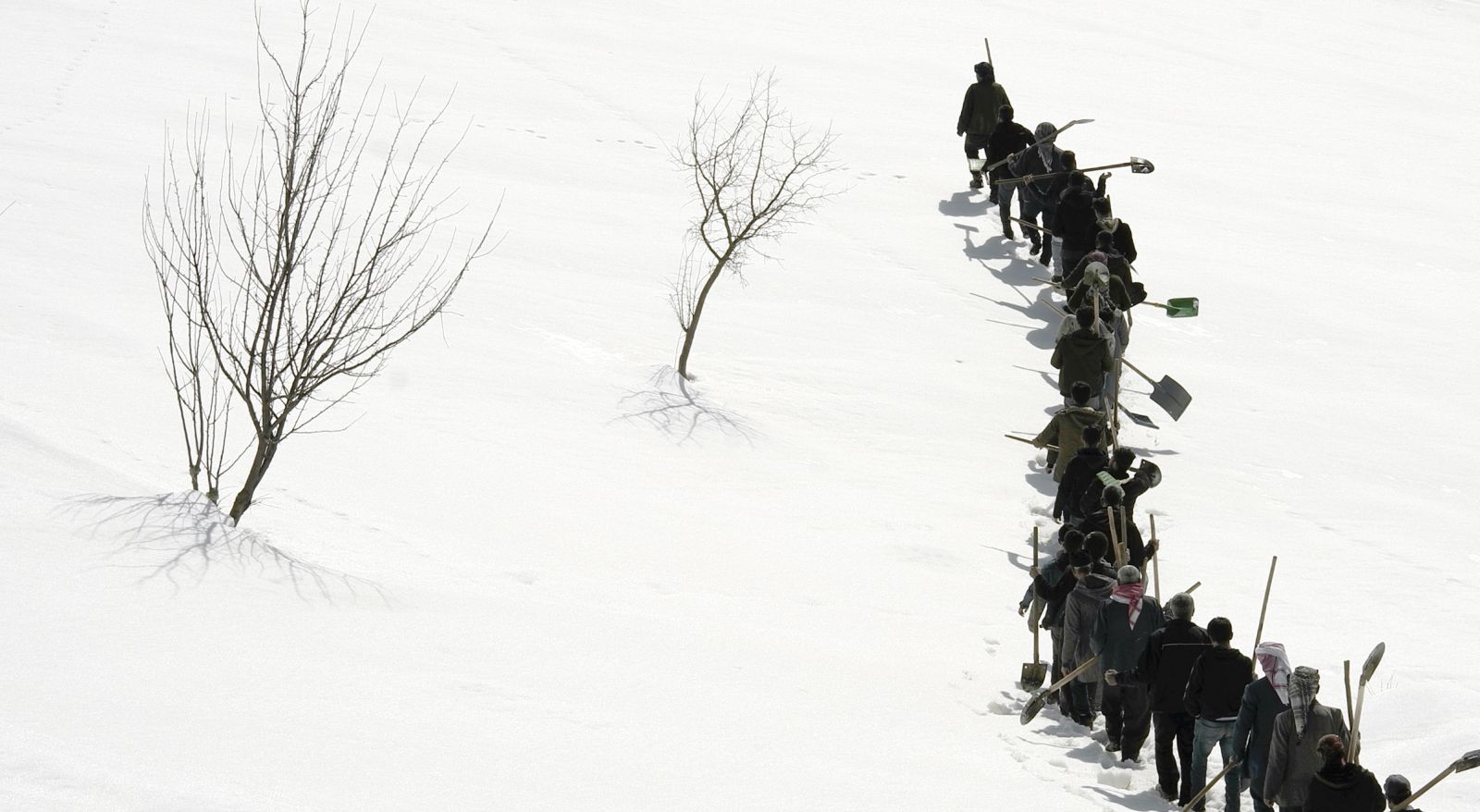Pınar Öğrenci: Aşît - The Avalanche
A screening and discussion with KHI-Villa Romana Artistic Research Fellow Pınar Öğrenci, moderated by Costanza Caraffa and Gerhard Wolf

In Eastern Turkey, in the Kurdish region of Van, snowfalls frequently prevent the inhabitants from travelling. A thick and dangerous pristine layer of snow covers the mountain peaks, serving as a reminder of the double meaning of the Kurdish word “Aşît”: avalanche and disaster. Inspired by Stefan Zweig’s novella The Royal Game, in which playing chess is depicted as a means to survive fascism, The Avalanche recounts the history of the Armenian Genocide, a tragic event that is still contested by the Turkish state today. The filmmaker Pinar Öğrenci uses oral accounts, photographic archives, and present-day footage of the region to uncover the traces and traumas left by the Armenian people on their landscape, their habits, customs and memories. The seeming tranquillity of the scenery’s icy beauty is disturbed only by the sublime songs of the Armenian exile Hayrik Muradian, which tell of his people’s suffering and pay tribute to rugged landscapes of Van. The Avalanche is an essential piece of testimony; echoing the current stigmatisation of the Kurds, it warns us of history’s tendency to repeat itself. [Bastien Bento]
The Avalanche has been realized in the framework of documenta fifteen.
Artist and filmmaker Pınar Öğrenci’s films and installations deal with displacement, migration, survival, and resistance. Driving her works are difficult, everyday struggles; the stories she hears, observes, experiences, collects, and documents from different geographies. She has a background in architecture, which informs her poetic, atmospheric and experiential video-based works and site specific installations that accumulate traces of ‘material culture’ related to forced displacement. Her works are decolonial and feminist readings from the intersections of social and political research, everyday practices, and human stories that follow agents of forced migration. Her works have been exhibited widely at museums, art institutions including documenta fifteen 2022 in Kassel, Berlinische Galerie (2023), 12th Gwangju Biennial (2018), 6th Athens Biennial (2018), Sharjah Biennial13 (2017), MAXXI Museum, Rome (2016), SALT Galata, Istanbul (2015-6). Her first solo exhibition abroad was realized at Kunst Haus-Hundertwasser Museum in Vienna in 2017. She has been nominated for the Böttcherstrasse Kunst Prize 2022 in Bremen and won the Villa Romana Art Prize for 2023.
Pınar Öğrenci is currently KHI-Villa Romana Artistic Research Fellow.
02. November 2023, 18:00 Uhr
Kunsthistorisches Institut in Florenz
Max-Planck-Institut
Palazzo Grifoni Budini Gattai
Via dei Servi 51
50122 Firenze
Hinweis
Diese Veranstaltung wird durch Fotografien und/oder Videoaufnahmen dokumentiert. Falls es nicht Ihre Zustimmung findet, dass das Kunsthistorische Institut in Florenz Aufnahmen, auf denen Sie erkennbar abgebildet sein könnten, für die Veranstaltungsdokumentation und Öffentlichkeitsarbeit (z.B. Social Media) verwendet, bitten wir um eine entsprechende Rückmeldung.


